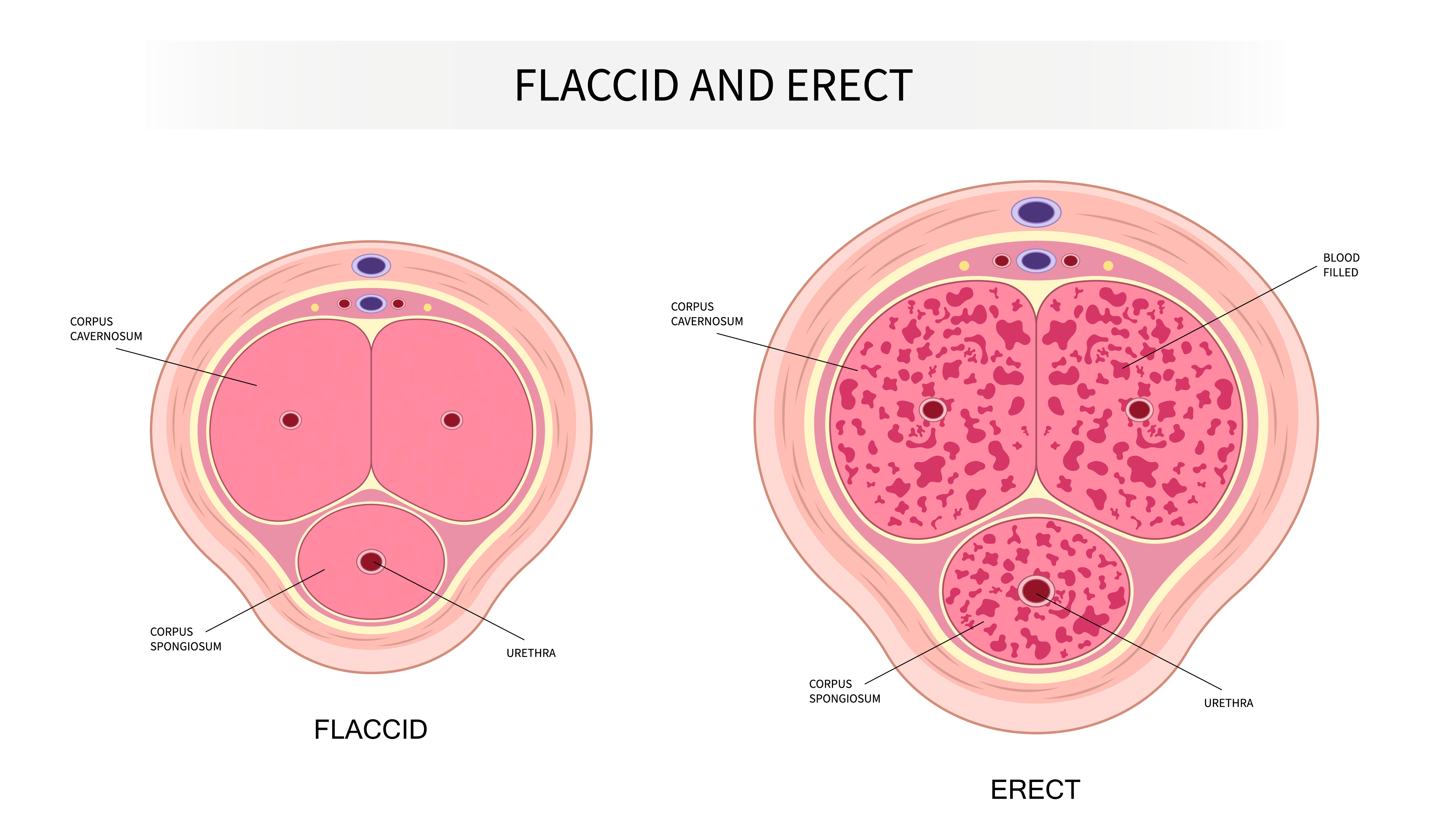


If you can’t keep it up or are too soft for sex, it’s frustrating. Read on to discover the most common cause of these problems and how to resolve them.
Last Updated: 09/22/2025

If you have erectile dysfunction, you’re likely experiencing one or more of three problems:
You can’t get it up
You can’t keep it up
Your erection isn’t firm enough for sex
“A lot of times guys think that if they have a soft erection, they don’t have full-blown ED,” says Paul Thompson, M.D., a urologist and surgeon for more than 30 years. “In reality, however, not having a firm enough erection is considered ED if it happens often enough and is one of the first signs that your sexual health is in need of repair.”
In this blog post, we’ll address the most common types of erectile dysfunction, as well as what causes the symptoms of ED, such as not being firm enough for sex or not being able to keep it up.
Although ED can be psychogenic (psychological), as we covered in a past blog post, the most common forms of ED are often physical. Here are the primary types of physical erectile dysfunction: (1)
Vascular ED - This is the most common type of ED. It refers to ED caused by anything that reduces or blocks blood flow to penile tissues. Without a sufficient blood supply, you won’t be able to get or maintain an erection.
Neurogenic ED – This type of ED is caused by nerve problems that interfere with the communication that normally occurs between your brain and your penis. When this happens, your penis doesn’t get the memo that it’s supposed to be erect.
Hormonal ED – This type of ED is caused by low testosterone or problems with thyroid hormones.
“If you’ve reached the stage where you can’t get it up at all,” says Dr. Thompson, “then you have severe erectile dysfunction. It’s not hopeless at this point, but you are going to have to work harder to resolve the problem. That may mean being more dedicated to lifestyle solutions and using acoustic soundwave therapy for a longer period of time before it kicks in.”
When ED becomes severe, it’s often because you ignored the issue when it was less severe. In cases of neurogenic ED, the erectile dysfunction could happen suddenly due to trauma, pelvic surgery, radiation therapy, or having a stroke.
Venous leak is a common cause of erections that go limp before you’ve had sex. Venous leak also may be to blame if you’re unable to stay firm enough for intercourse.
Venous Leak, or venous leakage, is a condition in which blood abruptly drains from the penis, causing men to lose their erections. It is a type of vascular ED. During venous leak, the problem is not with the veins, but rather malfunctioning of the smooth muscle that surrounds the veins.(2) Venous leakage happens in 10% - 20% of men over 60 years of age.(3)
“If you tend to lose your erection when you change positions,” says Dr. Thompson, “that can be a sign of venous leak. Loss of quality morning erections is another red flag that you could have venous leakage.”
If you don’t treat venous leak, it can lead to outright erectile dysfunction. It’s also considered a precursor to atherosclerosis (plaque buildup in the arteries) and vascular disease.(2)
In patients who are having a difficult time maintaining firm erections, Dr. Thompson recommends several approaches:
1. Exercise daily to boost your circulation.
2. Employ the Smart Ring.
3. Use at-home acoustic soundwave therapy.
Aerobic exercise is a way to reduce the risk of conditions that impact the health of blood vessels and surrounding tissue, such as diabetes and high blood pressure.
Kegel exercises may also help since they strengthen the bulbocavernosus muscle in males, which helps the penis to fill with blood.
The Smart Ring not only traps blood in the penis, it also tracks measures of sexual health, such as whether you are having morning and nocturnal erections.
At-home acoustic soundwave therapy is a way to tap into the benefits of a solution that’s been used in doctors’ offices and clinics for over a decade. Acoustic soundwave therapy—or Li-ESWT, as it’s also called—sends powerful but gentle shockwaves through the penile tissue to support healthy erectile function.
Acoustic soundwave therapy breaks down microplaque that builds up inside penile blood vessels. This improves blood flow to the penis. Controlled microtrauma from treatment triggers angiogenesis, your body’s natural process for replacing and building new blood vessels.
“The at-home version of acoustic soundwave therapy is an excellent way to avoid the high cost of in-clinic therapy, which a lot of my patients can’t afford,” says Dr. Thompson. “The at-home version has equally effective results at a fraction of the cost, and it’s more convenient than the in-clinic version.”
Although not every man realizes it, having an erection that’s too soft for sex is a type of erectile dysfunction. The same is true for losing your erection before you’ve entered your partner. Both of these problems are often caused by venous leakage.
You can support healthy blood flow to the penis by exercising, employing the Smart Ring, and using an at-home acoustic soundwave therapy device. In the end, you have options to improve your sexual health.
1. https://my.clevelandclinic.org/health/diseases/10035-erectile-dysfunction
2. https://www.hopkinsmedicine.org/health/conditions-and-diseases/erectile-dysfunction
3. https://pmc.ncbi.nlm.nih.gov/articles/PMC10341160/